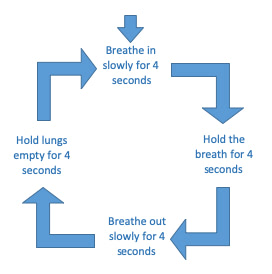Feeling stressed about ‘results day’

When we talk about ‘exam stress’, we often think about revising or taking exams, but stress around results day is common too.
To manage this kind of stress, try to understand what might be causing it and think about strategies that will help.
Remember that feeling apprehensive, worried or anxious about important news is normal. For many students, these results will influence what they do next – the course, college, university, or job they take – and it’s understandable that most will feel some level of nerves.
Students we have spoken to have told us that their main worry was not getting the results they hoped for, how they would tell their parents or friends, and what it might mean for their university or college course. But many were also worried about what would happen if they did get the results they wanted, as it would mean making a change. For many, the main cause of stress was uncertainty.
What can you do to help?
Although you don’t know what will happen on results day, you can help manage any feelings of stress by making plans and preparing for different outcomes.
Plan for getting the results you hoped for
Getting the results you hoped for can be stressful because it leads to change – a new school year, college, university, or job. Planning for what this might be like can help reduce stress. If you are planning to go to university, find out details about the courses, locations and amenities, or the different clubs and societies you can join. If it’s A levels, do some research about your courses and the resources which might be useful, such as textbooks and websites. Even finding out practical information, such as the bus you will need to catch, can help to reduce stress and make you feel more in control.
Plan for not getting the results you hoped for
It is important to realise that not getting the results you hoped for is really not ‘the end of the world’. We say this because most people at one time or another do not get the results they hope for, but still go on to have a successful life. If you don’t get the grades you hoped for, you may feel upset, disappointed or embarrassed, and that’s completely normal. Planning ahead for what you will do if this happens can help you see that there are ways to move forward and you will be better motivated to put your plan into action if that occurs.
Share your plans
Students often worry about how family and friends will react if they do not get the results they hoped for. As you plan for different outcomes, it can be helpful to share your plans with the people around you. It will help them to see that there are other options available and, if you need their advice, you can quickly begin a constructive conversation.
‘File’ away your plans and get busy with other things
Once you’ve made your plans for different outcomes, ‘file’ them away in your mind and get busy with other things. Being busy, getting out with friends or doing jobs that need attention, can help take your mind off the uncertain future.
Planning for results day itself
Getting your results can feel like a stressful experience in itself. It is useful to plan in advance how you will approach the day and make some decisions.
- How do you plan to get your results?
- Do you want to access your results online, for example through your school or college digital platform? Or would you prefer to open your results at school/college or at home?
- Do you want someone to be with you?
Planning this in advance allows you to imagine what the experience will be like and this reduces stress. And remember to plan for the way you would prefer to do it, rather than feeling you must do it in the way other people think you should.
It’s understandable you may feel apprehensive on results day. At stressful points, you may find it helpful to use breathing techniques to reduce physical symptoms of stress and to feel calmer. If you think this might work for you, you could try ‘four square breathing’. This works by deliberately breathing in a slow pattern shown here:

Good luck!
Contributors to this series are:
Professor Kevin Woods (series co-ordinator)
Dr Cathy Atkinson
Kerry-Ann Brown
Dr Rob Buck
Dr Deborah Flitcroft
Dr Jo Greenwood
Amanda Hipkiss
Dr Abi James
Tamsin McCaldin
David Soares
We are a group of researchers and practitioners working at, or in partnership with, The University of Manchester Institute of Education. We have professional backgrounds as school teachers and/ or educational psychologists working in secondary, primary and special schools. Our research and professional practice covers a range of learning and well-being issues, including those relating to school examinations and tests, such as examination stress, test anxiety, and access arrangements. We are pleased to be working with Ofqual to bring our understanding of these issues to a wider audience through a series of blogs to be published over the coming weeks. These blogs are written for teachers, parents, examinations officers, and older students. We hope you find them informative and helpful.
Recent projects:
Buck, R. (2018). An investigation of attentional bias in test anxiety. Manchester Institute of Education, The University of Manchester
Flitcroft & Woods (2014). The language Key Stage 4 teachers use prior to high stake exams and how this can be adapted to suit their students. DfE ITEP-funded through The University of Manchester.
Hipkiss, A. (2014). Management of GCSE access arrangements: utilizing student feedback and observational data. ESRC-funded CASE project through the North West Doctoral Training Partnership (NWDTP).
McCaldin, T. (2015). GCSE student experience across Key Stage 4. ESRC-funded through the North West Doctoral Training Partnership.
Some recent publications:
Buck, R. (2016). An ethical approach to anxiety manipulation in school-based research. Psychology of Education Review, 40(2), 10-16.
Atkinson, C., Thomas, G., Goodhall, N., Barker, L. Healey, I., Wilkinson, L. & Ogunmyiwa, J. (2019) Developing a student-led school mental health strategy. Pastoral Care in Education. doi: 10.1080/02643944.2019.1570545
Flitcroft, D., & Woods, K. (2018). What does research tell high school teachers about student motivation for test performance? Pastoral Care in Education, 36(2), 112-125. https://doi.org/10.1080/02643944.2018.1453858
Flitcroft, D., Woods, K., & Putwain (2017). Developing practice in preparing students for high-stakes examinations in English and Mathematics. Educational and Child Psychology, 34(3), 7-19.
Woods, K., James, A., & Hipkiss, A. (2018). Best practice in access arrangements made for England’s General Certificates of Secondary Education (GCSEs): Where are we 10 years on? British Journal of Special Education, 45(3), 236-255.











Responses